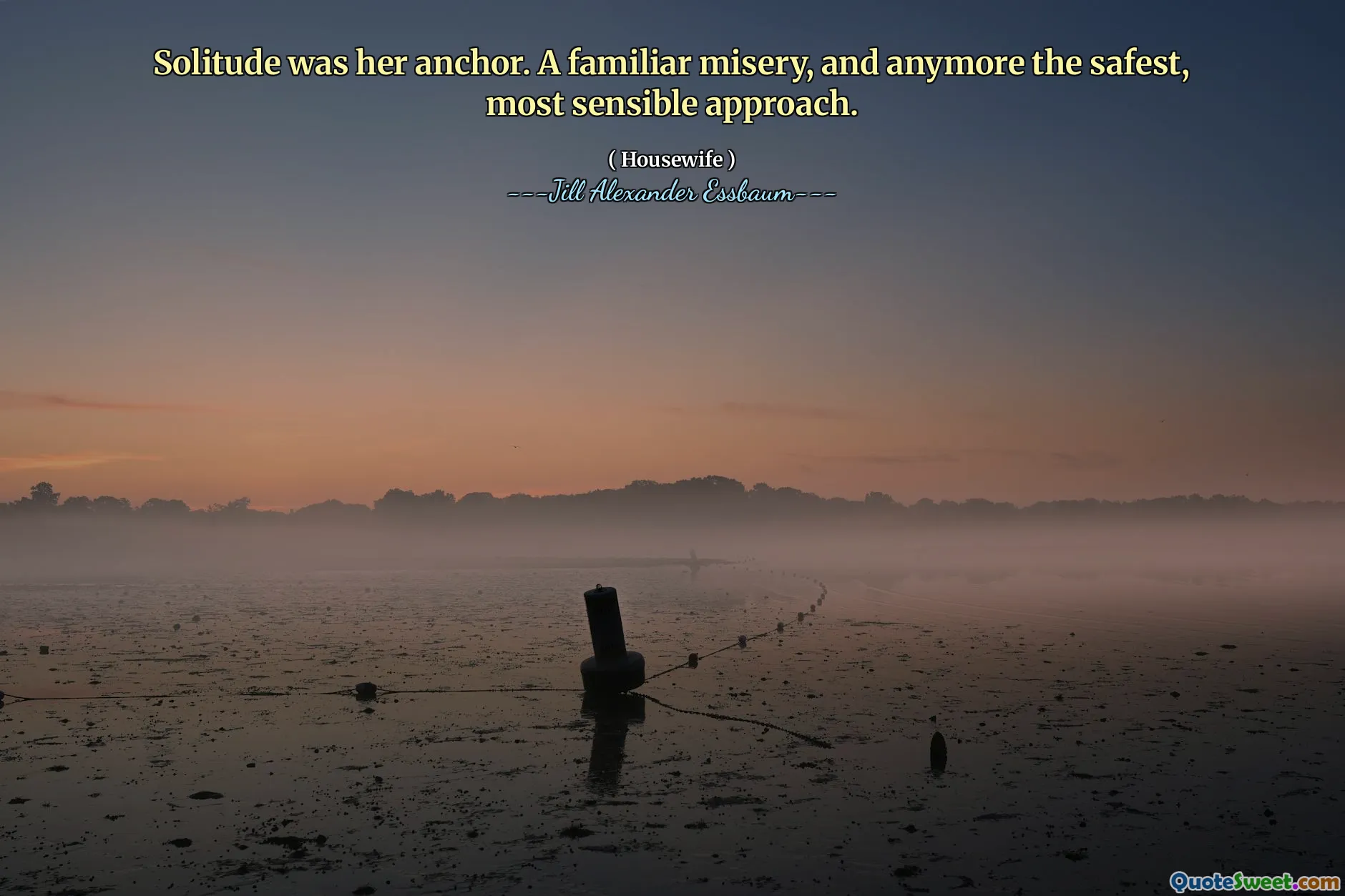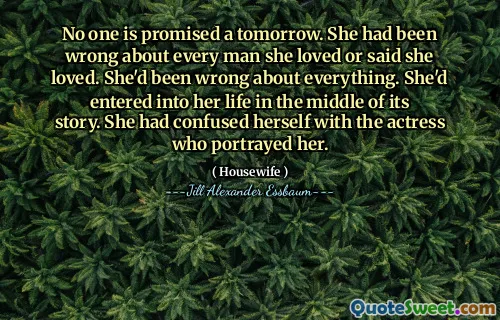
Solitude was her anchor. A familiar misery, and anymore the safest, most sensible approach.
The quote encapsulates a profound understanding of solitude as both a refuge and a source of suffering. It suggests that for the individual, solitude functions as an anchor—grounding yet also potentially restricting. The phrase 'familiar misery' hints at a certain comfort in the suffering that solitude provides; it becomes predictable, almost a part of the individual's identity. Over time, it seems this person has come to view solitude not merely as a temporary state but as a safe haven, even if it is laced with pain. This reflects a nuanced perspective on loneliness, recognizing that sometimes avoiding the turbulence of social interaction can feel safer and more sensible than confronting the complexities of human connection. The acceptance of solitude as the safest approach indicates a sense of resignation or perhaps a coping mechanism—where emotional risks are avoided in favor of the comfort of familiarity, despite its misery.
This quote resonates with many who find themselves retreating into solitude not out of choice but from necessity or fear. It raises questions about the balance between solitude and social engagement and highlights how comfort zones can sometimes foster a sense of safety at the expense of growth or happiness. The depiction is bittersweet, capturing the paradox of loneliness—that it can be both a sanctuary and a prison. It invites reflection on the importance of community and connection, yet understands the allure of retreat when circumstances or inner turmoil make interaction overwhelming. Ultimately, it’s a poignant reminder of the complex relationship humans have with solitude—being both a refuge and a burden.
Book: (Housewife) Author: Jill Alexander Essbaum






